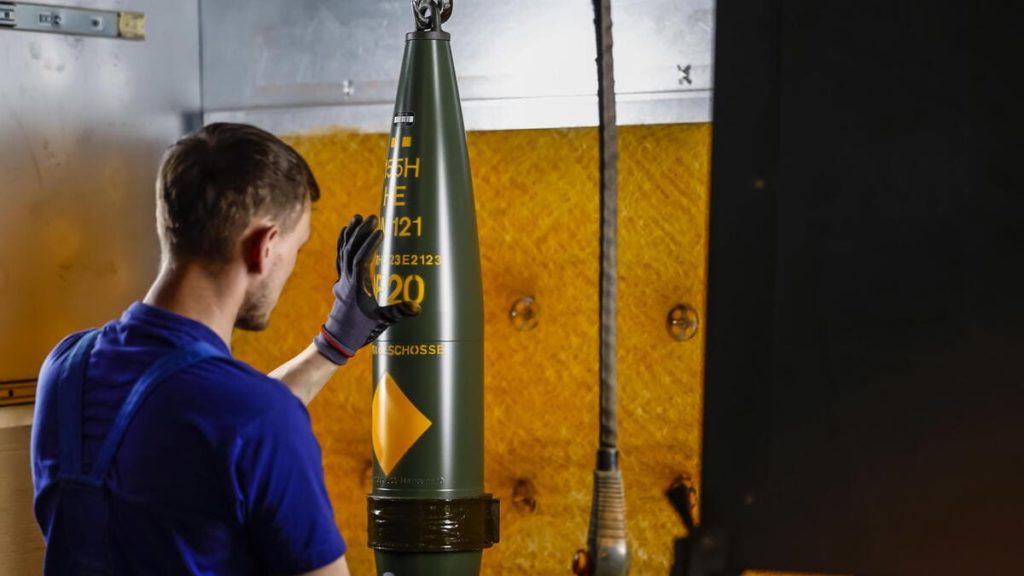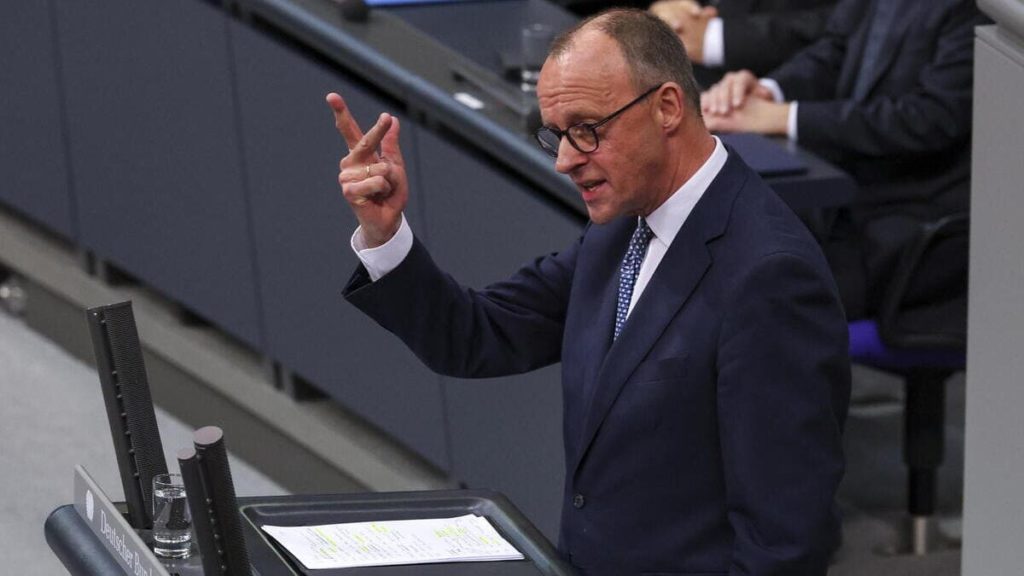Welcome to the Transformation of Industry in Germany Blog!
Located in Eastern Germany, the city of Görlitz has been known for over a century for its train factory. Particularly, for the double-decker carriages produced since 1935. This year, the last electric train will be built, destined for the Israeli Railways, and next year the production will undergo a complete change. The factory, owned by the French company Alstom, will be taken over by Knds, a European defense industry holding based in Amsterdam, which will manufacture parts for the Leopard II tank and the armored infantry vehicle Puma in this corner of Germany.
Germany’s Focus on Arms
The conversion of the manufacturing industry in Görlitz from civilian to military purposes is not random and aligns with the future chancellor Friedrich Merz’s attempt to reindustrialize the country through arms factories as the automotive sector faces challenges in closing plants and laying off employees.
Since Berlin lost access to Russian gas as a low-cost energy source due to the Ukraine invasion, German energy-intensive sectors have lost 20% of production, resulting in the disappearance of 250,000 manufacturing jobs.

The Boom in Defense Investments
Public and private investments in the defense sector are hoped to turn the tide. Since 2020, German military spending has increased by 80% to €90 billion in 2024 (Italy is expected to reach a record €32 billion this year). Berlin has not yet approved the “bazooka,” which would allow additional investments of about €50 billion annually.
The German defense industry employs approximately 60,000 people, including 150,000 in the supply chain, according to Klaus-Heiner Röhl, an expert at the German Economic Institute in Cologne. Companies like Rheinmetall, Diehl Defence, Hensoldt, and Renk plan to hire 12,000 new employees by 2026, as reported by the Financial Times.
From Cars to Tanks
If Knds takes over Alstom’s train factory next year, hiring 350 of the 700 employees left jobless, Rheinmetall has announced its intention to immediately acquire Volkswagen’s Osnabrück factory and potentially those in Neuss and Berlin. The goal, according to CEO Armin Papperger, is to “double the size of our ten factories or build new ones.”
Oliver Dörre, CEO of Hensoldt, mentioned to Reuters that the group could benefit from the automotive sector’s struggles by hiring surplus workers from major brands like Volkswagen or its main suppliers, Continental and Bosch.
Although the industry is in need of more labor, finding it is not easy due to the lingering stigma around arms manufacturing in Germany and laws prohibiting the hiring of workers from Russia, China, Iran, Syria, and Afghanistan in the defense sector.
“The Armaments Summit”
Investments and job opportunities are gradually shifting public opinion, leading federal states to compete for a piece of the defense industry pie. In the last quarter of 2024, according to the Ifo Institute, only 5 out of 16 federal states showed growth, with three (Lower Saxony, Mecklenburg-Western Pomerania, and Schleswig-Holstein) attributing it to defense investments. Lower Saxony’s president, Stephan Weil, stated they will “continue on this path.”
States falling behind, like Baden-Württemberg, expressed a desire to be included in the defense industry’s expansion. The Saarland Parliament approved a motion to implement regulations to attract arms factories, even organizing an “armaments summit.”

Germany Feels “at War”
Major defense companies have more money to invest than ever before. Thanks to government contracts and future projects, Rheinmetall increased dividends by 42% this year, Hensoldt by 25%, and Renk by 40%. Germany aims to increase its army to 203,000 personnel by 2031, with reservists growing from 60,000 to 260,000. Significant funding will be required to arm them adequately.
While those around the future German Chancellor, Merz, assure that these investments are necessary “in times of war,” not everyone in Germany is pleased with the country’s new direction.
“We Must Not Encourage Conflicts”
Carsten Liebig’s family has been building trains in Görlitz for three generations. His children will now produce tanks. “It’s truly sad for me that there is still a need to produce weapons,” he told the Ft.
Sebastian Wippel, who almost became the city’s mayor with the Afd in the last elections, added: “Our army needs tanks. But the defense industry must not become a means to prepare for war or pressure politicians to eventually start a conflict.”



